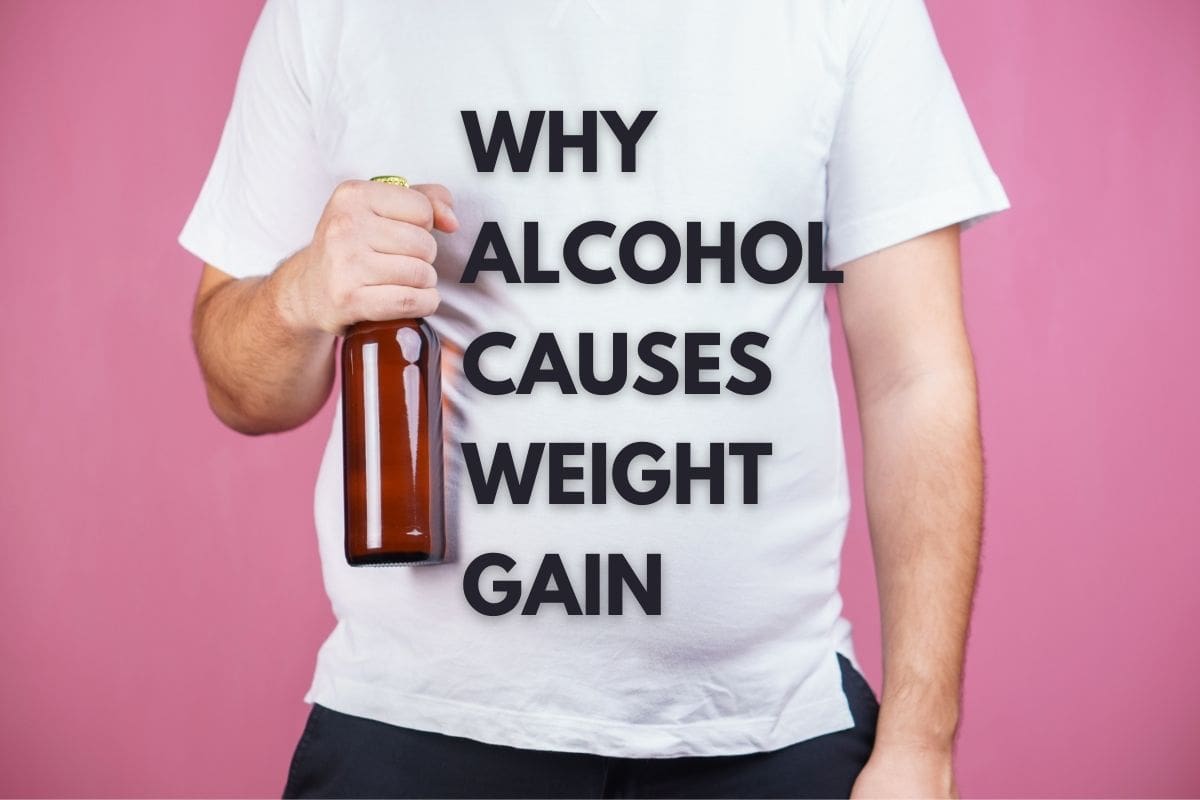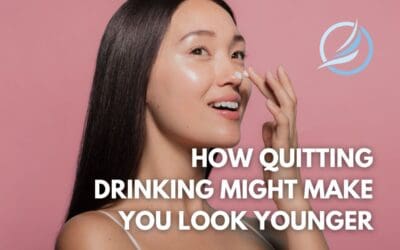Unhappy with the number on the scale? The culprit might not be what’s on your plate, but rather, what’s in your cup. Alcohol is a nutritionless calorie bomb packed with carbs and sugar. Beer and wine have about 150 calories a serving. Hard liquors like gin vodka, and tequila pack close to 100 calories per fluid ounce—and your standard cocktail might have one or two per drink. But empty calories alone aren’t the only reason why alcohol causes weight gain. Boozy beverages are a perfect storm that causes your body to run less efficiently and ultimately, store more fat. Here are three ways that your boozy beverage has been sometimes not-so-subtly sabotaging your waistline:
1. Alcohol calories are burned first
Caloric content aside (which can be considerable considering that the average American drinks between 4 and 14 drinks per week—that’s an extra 600 to 2,100 of liquid calories), the way that alcoholic calories are handled once they’re inside your body can make a big impact on your weight. Normally, your body uses the food you’ve consumed on a first-come, first-serve basis.
When alcohol enters your body, it essentially cuts the line, replacing the last meal you ate as the body’s primary fuel source.
While it might sound like a good thing that those alcohol calories are being used, it’s bad news for the food in your stomach. The energy (carbs and sugar) from that food goes unused if not immediately necessary. That excess is then stored as body fat. According to a study conducted at Oxford, that fat can show on the scale in as little as four hours.
2. Alcohol Makes You Eat More
There is a direct correlation between alcohol consumption and an increased appetite. Drinking can interfere with the hormone leptin, which signals to our brains when we’ve had enough, causing us to eat more in order to feel full. Further, studies have proven that alcohol provides absolutely no satiation to feelings of hunger, despite all the excess calories they provide. This is likely due to alcohol triggering specific neurons associated with the body’s starvation mode.
To make matters even worse, alcohol can cause you to crave foods that are really bad for you. Why? Alcohol enhances the already hard-to-resist tastiness of salts and fats, the flavor areas where junk food reigns supreme. Normally, we might possess the wherewithal to avoid greasy food late at night when our metabolism is at its slowest. But alcohol can lower both our inhibitions and judgment, making that midnight fast-food run difficult to refuse.
3. Alcohol slows down your metabolism
The speed of your metabolism determines how many calories you burn when your body is at rest (i.e. sitting and sleeping). Since having excess calories lying around is the cause of fat building up and consequently, weight gain, the faster your metabolism the better. Alcohol can interfere with your natural fat-burning ability by harming the organs involved in the digestive tract. The stomach, liver, and intestines are crucial to your body getting the nutrients it needs. Heavy alcohol consumption can impair their function, causing your digestive system to be less efficient at breaking food down.
If you’re struggling with weight loss, skipping on that beer or second glass of wine could make a huge difference. Even if you’re happy with your physical appearance, minimizing your alcohol intake is likely to improve your internal health significantly, reducing your risk of heart and liver disease, diabetes, and even certain cancers. If you’ve tried to cut back on drinking before and found it difficult, you might have a drinking problem. Get help today and learn how alcohol addiction treatment works and if it’s right for you.

































